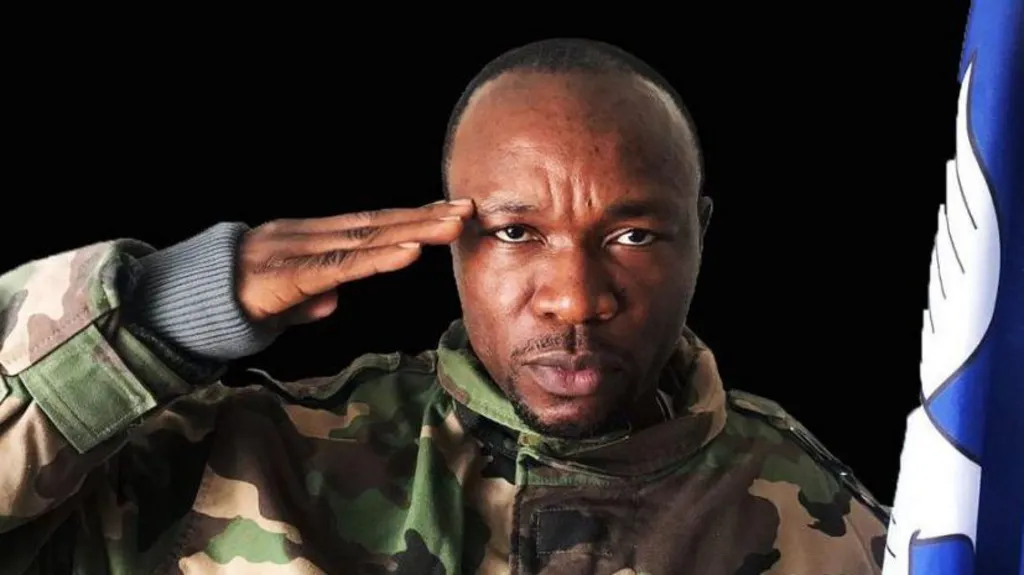A Cameroonian separatist leader has been arrested in Norway for his alleged role in the ongoing armed conflict in the Central African country.
Lucas Ayaba Cho was arrested on Tuesday on “charges based on his various expressions on social media”, his lawyer.
Cho is an influential figure in the Anglophone movement pushing for independence from Cameroon, where over 6,000 people have been killed and nearly a million others displaced since fighting began in 2016.
Some in the country’s two English-speaking regions say they are discriminated against by the French-speaking majority.
Human rights group Amnesty International has accused both government troops and the armed separatists of killings, rapes and torture of civilians.
A Cameroonian official told that Norway and Cameroon had a security agreement, which could see Cho being extradited in the coming days.
His lawyer said he wasn’t aware of any extradition request.
Who is Lucas Ayaba Cho?
Cho, who describes himself as a liberation leader, is one of the most prominent separatist leaders shaping the conflict in Cameroon’s restive Anglophone regions.
On its website, the 52-year-old is described as Commander-in-Chief of the Ambazonian Defence Forces (ADF), one of several armed groups seeking independence from Cameroon.
He commands his movement from his base in Norway, where he is believed to have ordered a recent two-week lockdown as part of the separatists’ campaign to boycott schools.
Known for his tough-talking and hard-line approach, he came under criticism after ADF fighters recently targeted taxi drivers in the North-West region, ordering them to change the colour of their vehicles from yellow to white and blue – the colours of the flag of the planned break-away state of Ambazonia. Some of those who refused saw their vehicles burnt.
The ADF’s political wing, the Ambazonia Governing Council, has imposed a “liberation tax” which compels people living in the restive Anglophone regions to pay a certain amount of money to fund the conflict against the government.
In January 2017, he said he survived an assassination attempt after holding talks with other separatist leaders in Belgium.
His anti-institutional radicalism did not emerge with the outbreak of the Anglophone crisis in 2016. It’s a trait that dates as far back as the 1990s when he was reportedly expelled from the University of Buea for taking part in demonstrations over an increase in tuition fees.
Norway’s National Criminal Investigation Service (KRIPOS) said Cho “had a central role in an ongoing armed conflict in Cameroon”.
On Wednesday, the Norwegian investigators sought his custody from the Oslo District Court.
“We are in an early phase of the investigation, and there are several investigative steps that remain,” Norwegian prosecutor Anette Berger said.
Emmanuel Nsahlai, a US-based lawyer representing some victims of the Anglophone crisis in Cameroon, hailed Cho’s arrest as a “significant victory” against separatist violence in Cameroon.
“This arrest marks a critical step in holding him accountable for his actions and bringing justice to the victims of his violence,” Mr Nsahlai.
Cho is not the first separatist leader to be arrested abroad in connection with the violence in Cameroon.
Since the outbreak of the conflict, the Cameroonian government has been urging foreign countries hosting separatist leaders to facilitate their repatriation back home for trial over their role in the ongoing violence.
In 2018, Julius Sisiku Ayuk Tabe, the leader of the Anglophone separatist movement, and 46 others were arrested in Nigeria and later extradited to Cameroon.
